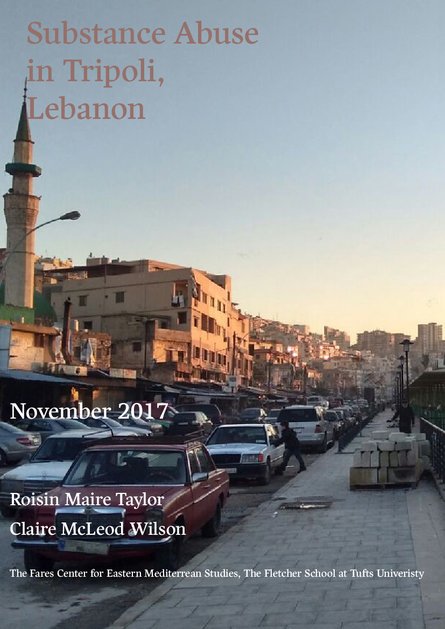
This small scoping research project was initially conceived to study the impact of Captagon, a WHObanned amphetamine that has been closely linked to the war in Syria, on the community in Tripoli. March Lebanon, a Lebanese civil society organization, requested this research in light of growing concern about trends of substance abuse coupled with an absence of treatment services in the city. Preliminary key informant interviews demonstrated that Captagon is one small slice of a much wider and more complicated culture of substance abuse in Tripoli. Substance abuse is inextricably linked to many other vulnerable aspects of the city’s condition: poverty, the illicit drug economy, armed groups, violent conflict, and an overwhelmed healthcare sector. The research undertaken in this report found that the perceived scale of substance abuse is serious and concerning. When offered a scale of 1-10 to quantify the problem of substance abuse in the city, research participants across the Tripoli map offered scores of 9, 10, and even off the charts at 111. Drugs appear to be cheap and easily accessible, while habitual usage is widespread and most concerning, untreated. There are no rehabilitation centers or even, basic treatment services in the city. The research at hand offers further insights into the complexities of substance abuse in Tripoli and hopes that findings will be instrumental in mobilizing much needed resources for localized treatment options.
Resource collections
- UN Habitat - Urban Response Collection
- Urban Response - Urban Crisis Preparedness and Risk Reduction
- Urban Response Collection - Community Engagement and Social Cohesion
- Urban Response Collection - Economic Recovery
- Urban Response Collection - Environment and Climate Change
- Urban Response Collection - Housing, Land and Property
- Urban Response Collection - Urban Crisis Response, Recovery and Reconstruction
- Urban Response Collection - Urban Resilience